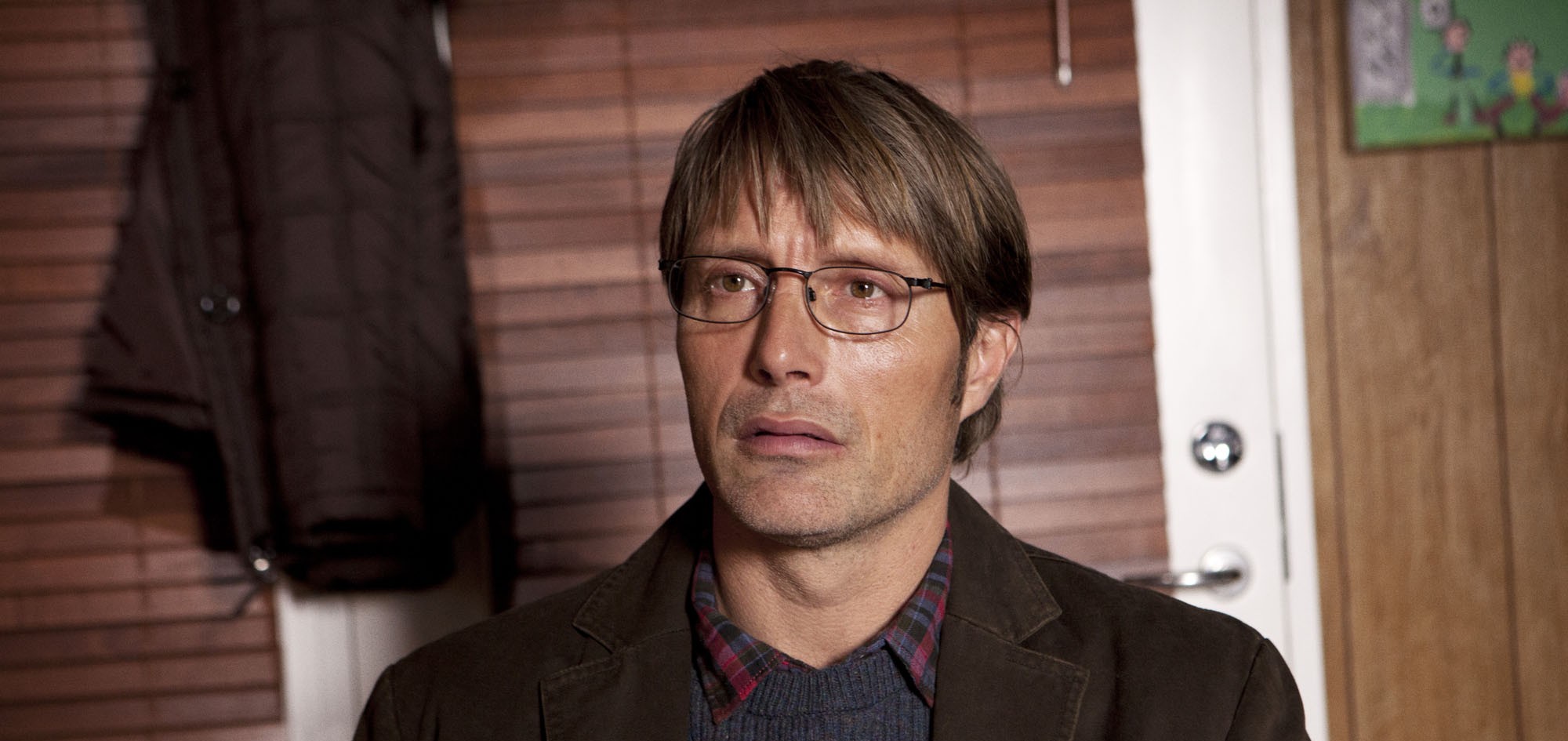
In the grand scale of things, the cinema of Denmark tends to be overlooked. Frankly, Denmark is a small country, and even with the funding by the Danish Film Institute, it still does not make many movies each year, and rarely reaches mainstream audiences, let alone international audiences.
Denmark has never been known for big blockbuster movies, nor will it likely ever be. Nevertheless, those who know about Danish cinema have been drawn to it by its unique (and usually dark) sense of humor, its realism, or its philosophical takes on themes like religion or morality.
Denmark has also had its fair share of visionary directors. In the dawn of cinema (the early 20th century), Ole Olsen founded the first Danish filmmaking company, Nordisk Film, and established Denmark as a place of talent when it came to movies. Later, the mantle was picked up by Carl Theodor Dreyer, who proved again that Denmark could make movies. After a bit of a stale period, the nation’s cinema was renewed by Lars von Trier and Thomas Vinterberg with the Dogme 95 movement.
Over many years, and with several men (and women) at the wheel, Denmark has turned out several great movies. This list will focus on the movies directed by Danes, set in Denmark, and/or featuring a mostly Danish cast (this means that the list will not include movies like Lars von Trier’s “Dogville”, since it is set in the United States and stars an American cast, and Henning Carlsen’s “Hunger”, since it is a collaboration between the three Scandinavian countries).
To keep it fair for the smaller directors, this list will only consider two entries per filmmaker.
20. Lion Hunting (Løvejagten)
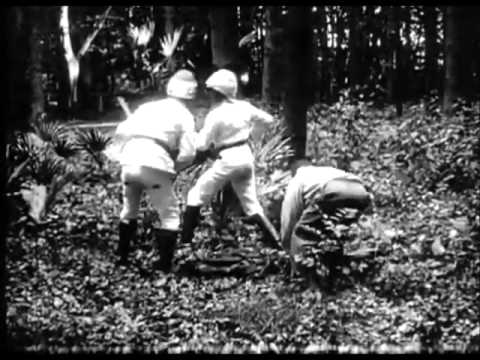
Lion Hunting (1907) is widely considered the first Danish movie to gain international recognition. The movie is directed by the founder of Nordisk Film, Ole Olsen, and features actors Viggo Larsen, Knud Lumbye, and William Thomsen.
The plot is simple: two lion hunters and their bearer tracks down and kills two lions. The movie sparked controversy, which led to accusations of animal abuse, since it featured the killing and skinning of two actual lions.
Olsen was actually banned from filming in Denmark, and when he continued to film anyway, he was deprived of his right to run a cinema in Denmark; for that reason, the premiere in Denmark was delayed until 1908. Meanwhile, in the rest of the world, the movie became a success, and Olson sold about 259 copies of the movie worldwide.
During the trial against Ole Olsen, it was discovered that the two lions were bought from a German zoo, and due to old age were to be put down anyway. Furthermore, the lions had been killed by professionals to prevent them from unnecessary suffering. The charges against Olsen were dropped.
Even though the 12-minute movie, by today’s standards, would be considered boring and unimpressive, it was a game changer when it came out. The movie is a cornerstone in Danish cinema history, and it was partially responsible for Nordisk Film’s success in the following years.
19. Stolen Spring (Det Forsømte Forår)
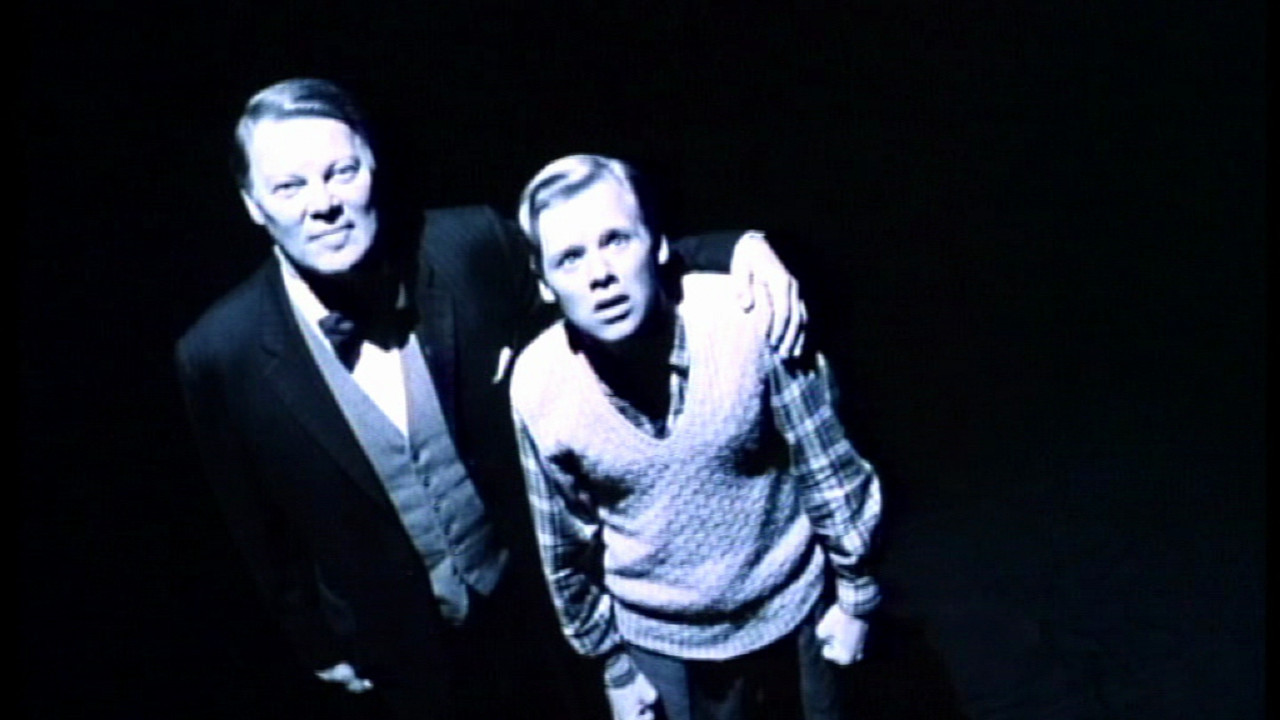
Stolen Spring (1993) was directed by Peter Schrøder, and stars Frits Helmuth, Tomas Villum Jensen, Jesper Langberg, Adam Simonsen, and several others. The movie is set during the reunion of a high school class, where the former students share their memories of their happy times at school. In reality, however, their days at the school were anything but happy; iron discipline and abusive teachers used to be a regular part of their day.
Told through flashbacks, the movie explores the war between the students and the teachers, which culminates in the murder of the evil Latin teacher, lecturer C. Blomme (Frits Helmuth). It is almost an exposure of the old school system, where learning by heart was more important than independent thoughts, and corporal punishment was used as a mean of education.
The movie is based on the 1940 novel of the same name by Hans Scherfig. Both are satirical tales of how the wrong school system can break down a human’s creativity and independence, and eventually lead to the person wasting the springs of his life, hence the title.
18. Armadillo
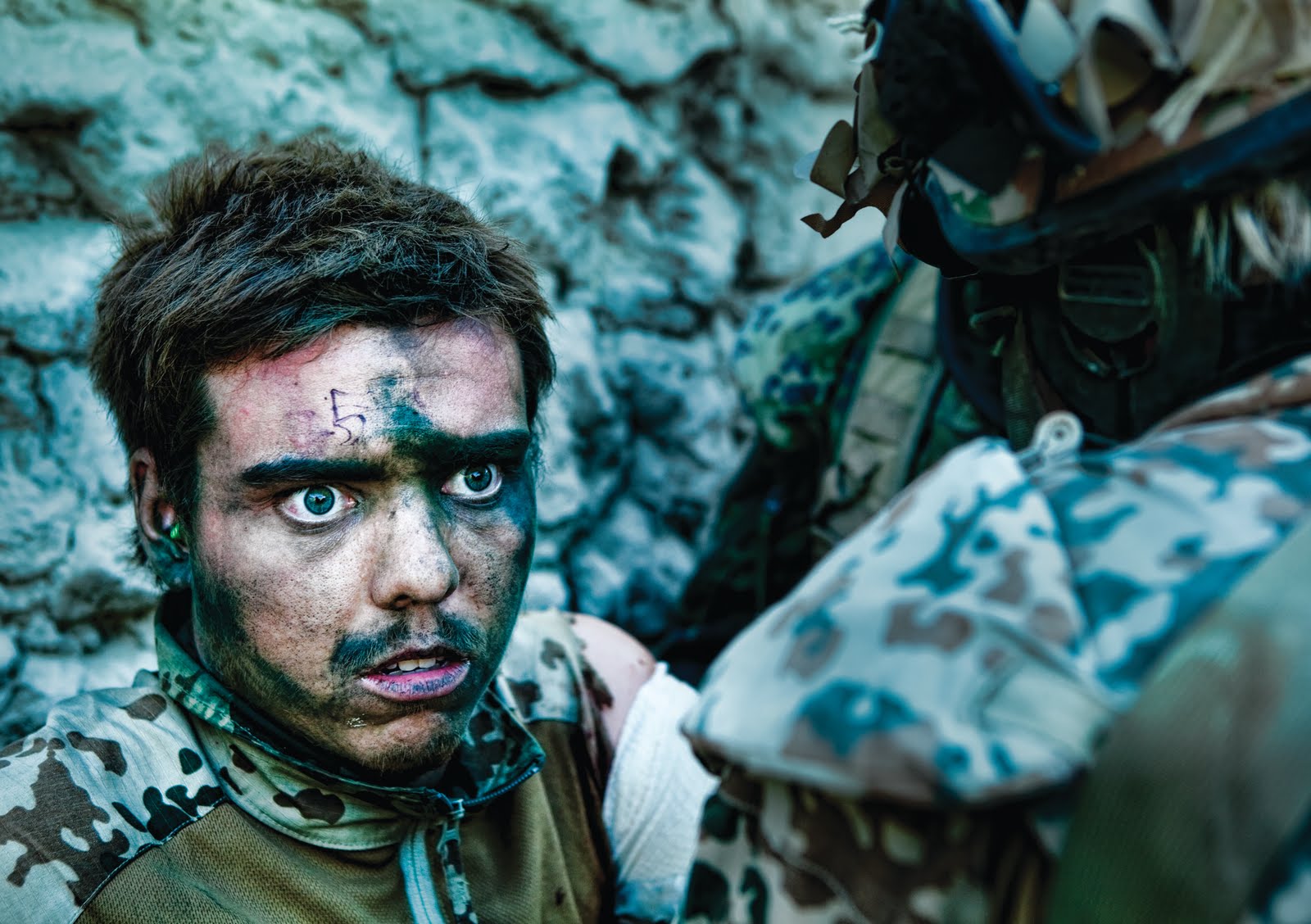
As the only documentary on this list, “Armadillo” is directed by Janus Metz Pedersen, and it stars the Danish soldiers from Team 7 at the Armadillo base in the Helmand Province in Afghanistan. The movie is filmed through helmet-mounted cameras that the soldiers would bring almost everywhere. In terms, that gave the director several hundred hours of footage, which were edited down to 101 minutes.
The movie follows the soldiers through their six months at the base, as they are out on patrol, making time pass back at the base, and even as they are physically battling the Taliban. The movie even shows encounters between the soldiers and civilians, who blame the forces at the Armadillo base for the problems in the local villages.
“Armadillo” won the Critics Week Grand Prize at the Cannes Film Festival in 2010.
17. Flickering Lights (Blinkende Lygter)
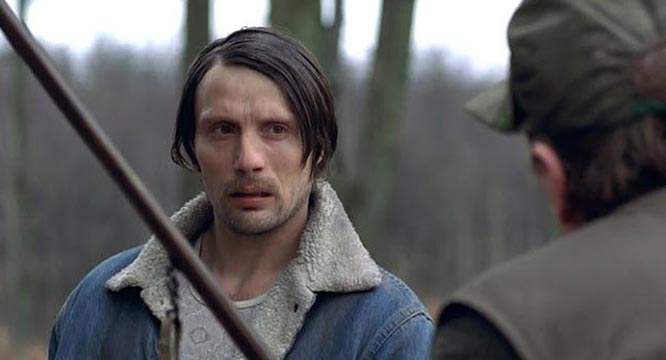
“Flickering Lights” is a black action-comedy by director Anders Thomas Jensen from 2000. The movie stars Ulrich Thomsen, Mads Mikkelsen and Nikolaj Lie Kaas as a gang of lovable criminals, and Søren Pilmark as their leader.
When they are hired for a job, they decide to steal a sum of 4 million Danish kroners from their employer, and head off to Spain. However, circumstances force them to seek residence in an abandoned house in the countryside, where they decide to stay. They agree to let go of the past and begin to transform the old house into a restaurant, until their former boss catches up with them.
At its initial release, critics described it as “dark humor at its best”, and since then. “Flickering Lights” has cemented itself in both Danish culture and Danish cinematic history.
16. The Olsen Gang Sees Red (Olsen-banden ser rødt)
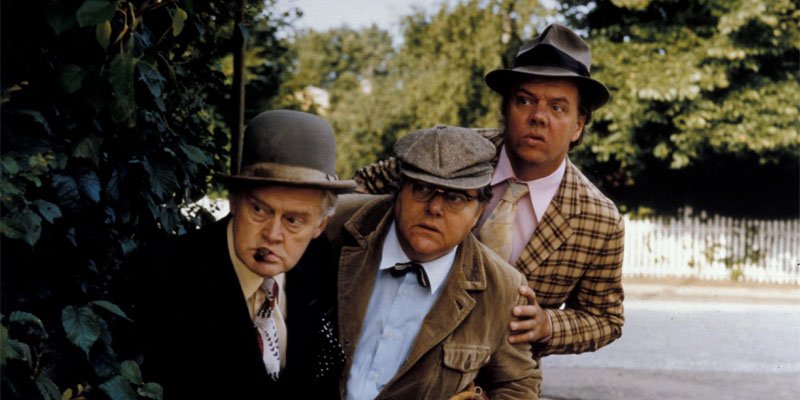
Since its beginning, no less than 14 films were released in the Olsen Gang franchise, if one leaves out the spin-off television show, the spin-off movie (that showed the gang as children), the spin-off musical, and the two animated sequels (from 2010 and 2013). The Olsen Gang franchise is without a doubt the most popular franchise in the history of Danish cinema.
The movies star Ove Sprogøe as Egon Olsen, the gang’s leader and the master of plotting heists, Morten Grunwald as the wisecracking getaway driver Benny, and Poul Bundgaard as the whimpering but lovable Kjeld.
Of the 14 installments in the comedy-heist film series, the best has to be the eighth, “The Olsen Gang Sees Red”. As with most of the other installments, “The Olsen Gang Sees Red” is directed by Erik Balling, and it follows the usual plot structure. The movie begins with Egon Olsen being arrested for a smaller break in, and after the opening credits, he is released. He meets the gang at Kjeld’s home where he introduces them to his next heist.
They then proceed to do another break-in to steal a Chinese vase, but discover they have been cheated, and the vase they stole was actually a worthless copy. For the finale, they attempt to steal the original vase by breaking into the Royal Danish Theatre during a concert, in spectacular fashion.
The most famous part of the movie is the 10-minute sequence where the gang has to break down four walls in the basement of the theatre without anyone hearing them. They accomplish this by synchronizing the sound of their tools (drills, hammers, and even explosives) to the overture of the opera “Elves’ Hill”.
“The Olsen Gang Sees Red” (and most of the franchise in general) was popular for its humor, its overly complicated heist plans, and even social commentary to some extent.
15. A Royal Affair (En kongelig affær)
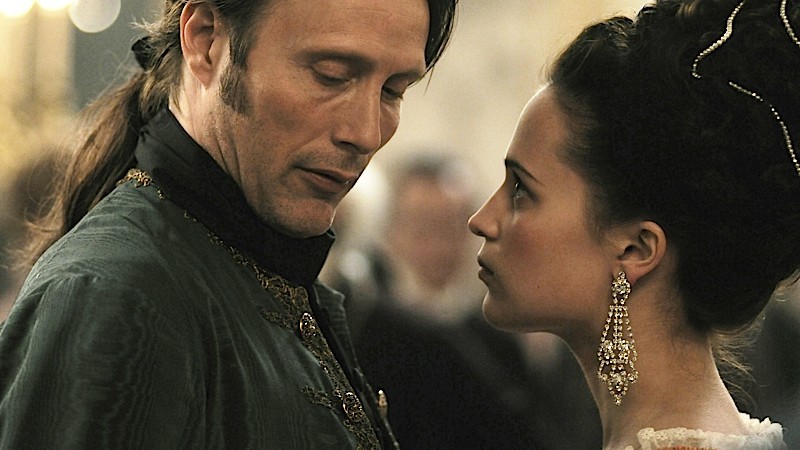
Considering its rich royal history, it is a bit strange that Denmark only has a handful of good historical dramas. Of that handful, “A Royal Affair” is one of the best, and definitely the most successful. The movie was directed by Nikolaj Arcel, and stars Mads Mikkelsen as Johann Struensee, Mikkel Boe Følsgaard as King Christian the 7th and Alicia Vikander as Queen Caroline Mathilde.
The movie is based on the true story about the mentally ill king, and his tragic marriage to the queen. Johann Struensee was the German doctor who helped him cope with his mental issues, and even saved the prince from smallpox. Struensee realized that the king was in no way capable of ruling the country, and in a sense, he actually ruled the country through the king. He also initiated an affair with the queen.
Even though the movie took a few liberties with the actual story, especially with regards to the way it represented Johann Struensee, there is no denying it is a great representation of a quite dire situation in the history of the kingdom. “A Royal Affair” was nominated for the Academy Award for Best Foreign Language Film in 2013.